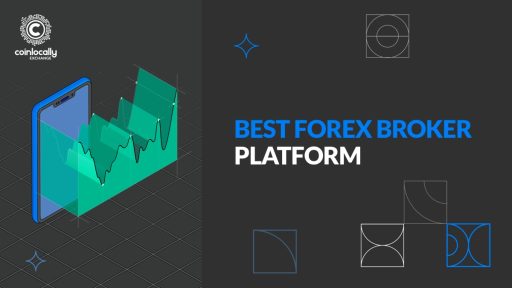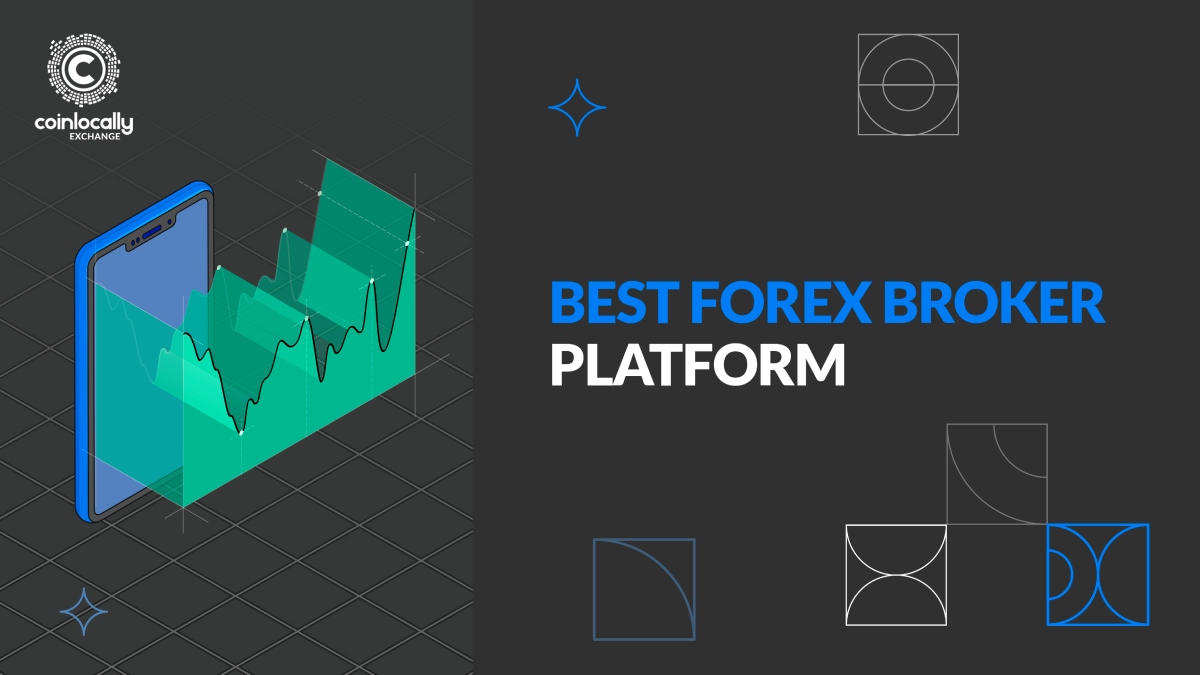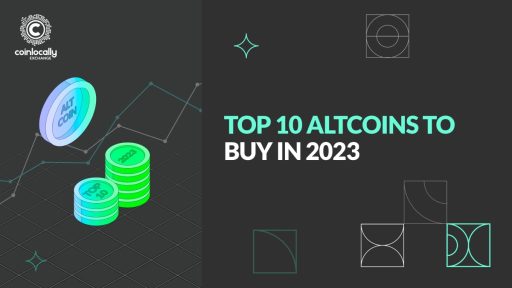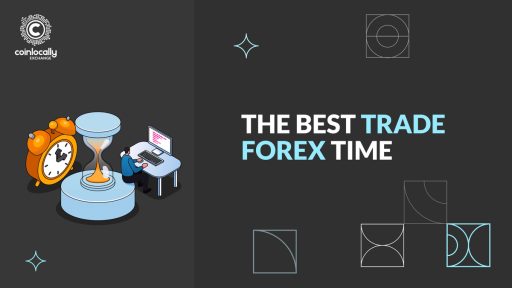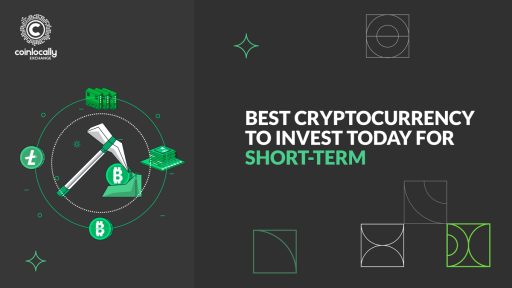The best forex broker platform must be chosen in the realm of financial trading if you want to succeed. Finding the best forex broker platform can significantly impact your trading adventure, whether you’re an experienced trader or a novice to the forex market. In this thorough article, we will examine the crucial elements to consider when selecting the best forex broker platform and explain the advantages of trading with Coinlocally Fx.
Quick Getaway: Looking for the best Forex broker platform? Coinlocally offers Meta Trader 5, one of the best Forex trading platforms Sign up here.
Table of Contents
• Introduction to Forex Trading
• Why Selecting the Best Forex Broker Platform Is Essential?
• Things to Take Into Account While Choosing a Forex Broker
– Tools and Platforms for Trading
• Coinlocally FX, the best forex broker platform
• Introduction to the Meta Trader platform
• Advantages of Coinlocally, the Best Forex Broker Platform
Introduction to Forex Trading
Foreign exchange, or forex, is the name given to the biggest and most active financial market in the world where currencies are bought and traded. It provides traders with excellent chances to profit from changes in exchange rates. To be successful in forex trading, however, one must first make an informed choice regarding their broker because it will have a significant influence on their trading path.
Why Selecting the Best Forex Broker Platform Is Essential?
Choosing the best forex broker platform is like picking a trustworthy companion for your trading endeavors. By serving as a middleman, the broker offers resources, trading tools, and access to the currency market. A trustworthy broker guarantees a safe and effective trading environment.
Things to Take Into Account While Choosing a Forex Broker
• Licensing and Regulation
In the forex business, regulation is crucial. Financial authorities oversee reputable brokers, guaranteeing that they follow stringent guidelines and procedures. For example, Pocket Option FX is governed by [Regulatory Body Name], which ensures a safe and secure trading environment.
• Tools and Platforms for Trading
Your entryway to the foreign exchange market is the trading platform. It should execute transactions quickly, have sophisticated charting features, and be easy to use. Pocket Option FX offers modern trading platforms to suit the needs of traders of all skill levels.
• Safety of Funds
A set of regulations that are designed to protect investor assets must be followed by regulated brokers. This is the main justification for the significance of regulation. A “Net Capital Rule” dictating a minimum amount of capital to be held in liquid form applies to all regulated brokers.
In this manner, investors have a “safety net” in case a broker is compelled to Most jurisdictions requiring regulated brokers to maintain minimum capital requirements also mandate that all client funds be kept segregated in separate accounts to prevent client funds from being used for purposes other than executing trades on behalf of clients, whether on accident or on purpose.
• Currency Pairs Available
Diverse currency pairs allow traders to investigate a range of trading possibilities. Majors, minors, and exotic currency pairs are all available from the top brokers, so you can trade the currencies that suit your trading plan.
• Margin and Leverage
Profits and losses in forex trading can both be increased by leverage. In addition to offering traders flexible leverage choices, a competent broker will also instruct traders on responsible use. Competitive leverage ratios are available from Pocket Option FX, emphasizing risk control.
• Broker Types
The kind of broker one uses can affect one’s whole trading performance and outcomes.
Dealing Desk vs. ECN Brokers
Dealing desk brokers operate similarly to the dealing desks that are offered by banks and other financial organizations. Trade offsetting is permitted for Forex brokers who use dealing desks and are licensed as Retail Foreign Exchange Dealers and Futures Commission Merchants (or similar in another nation).
Conversely, the No Dealing Desk method automatically adjusts positions before sending them to the interbank market. A basic conflict of interest arises because brokers using a dealing desk system only deal with one liquidity provider and do not interact directly with market liquidity providers.
In contrast, a broker that operates on the Electronic Communications Network (ECN) gives its traders immediate access to other market players. In terms of spreads, why is an ECN broker better than a Dealing Desk broker? It may provide far superior bid/ask spreads because it deals with price quotations from multiple trading companies.
Since an ECN broker matches trades between different traders, it cannot become the only market-maker and cannot, therefore, trade against its clients. This makes its business model entirely fair.
One more benefit of using an ECN is that brokers can charge a fixed commission on each transaction due to the lower spreads it offers. But you shouldn’t think of ECN brokers as a cure-all.
Their liquidity may dry up in some situations, resulting in far more significant slippages than Dealing Desk brokers’ clients may be experiencing. Sadly, a lot of brokers identify as ECNs but run a trading desk as part of their business, making them anything but “true” ECNs.
• Fees & Commissions
This takes us to the third crucial element in the brokerage choosing process: Costs
• Brokerage fees
The rates brokers charge for their services, which are aimed at helping buyers and sellers complete transactions, are known as brokerage fees. The amount of these fees varies depending on the type of broker and the kind of service the trader signs up for. To put it simply for retail traders, dealing desk brokers charge commissions only, whereas ECN brokers charge both spreads and commissions.
• Commissions & Spreads
All traders should be aware of the primary distinction between fees and commissions: fees are one-time costs, whereas commissions are contingent on the type of financial product delivered and the volume of the transaction.
• Premium services offered
Numerous extra benefits and premium features are available through full-service brokers, some of which are really very helpful. These services are not cheap, though. In this regard, you want to search for a broker who offers a wide range of high-end services at the lowest feasible cost.
We offer features like retirement consulting, tax planning, research, and advice on a broad range of traded assets in our premium service category. You should carefully consider if you really need these services. It makes little sense to become bogged down in the complexities of premium services if your main goal is to execute trades. That’s usually when a discount would be best.
• Does the broker offer a daily rollover in credit or debit?
Daily rollover is another important consideration. During the daily rollover, interest is either credited or debited to the entity holding a Forex position, depending on the respective interest rates of the currencies involved in the trade. Posts that remain open after 5:00 PM Eastern Standard Time are deemed to be held overnight.
When this occurs, the broker will take into account the trader’s purchase of one currency in relation to the other in the pair. The trader will receive rollover interest credited, at least in theory, if the difference in interest rates favors the purchased currency.
The interest will be deducted if the situation is reversed. The problem is that most brokers ensure their clients pay for the majority of positions they hold overnight, and there is no legal restriction on them exceeding the actual cost of the market. Most brokers automatically roll over open positions. It is crucial to understand that the rollover interest is computed on the entire trade amount, not just the margin, regardless of whether it is debited or credited. A further noteworthy aspect of the rollover interest is that it is taxed differently as interest income since it is a separate revenue stream from the capital gains.
• Trading Terms
1. Margin
By using a margin account, the investor effectively borrows money from the broker in order to take on larger positions than he could with just his own invested cash. Traders can use specific margin accounts for this reason.
The margin percentage for accounts that trade in 100,000 currency units is fixed at 1-2%. This implies that a trader must deposit $1,000 in order to hold a $100,000 position. Margin accounts have unique hazards associated with them as well as standard operating procedures designed to lower risk for both the broker and the trader.
Leverage and margin differ from one another quite simply. Assume a broker demands a $1,000 deposit in order to execute trades with a maximum value of $100,000. Leverage is the amount that multiplies the deposit by the maximum trade value, which in this case is 100.
Therefore, the leverage is 100 to 1. The required deposit amount expressed as a percentage of the maximum trading value is known as the margin. It is 1% here. It is merely the other way around from the previous computation.
Leverage = Maximum Trade Value / Deposit
In the context of forex trading, leverage refers to the ratio between the maximum trade value a trader can open and the deposit (margin) required to maintain that trade. With less cash, it enables traders to manage bigger positions in the market.
For example, if a broker offers leverage of 1:100, it means that for every $1 of margin deposited, the trader can open a position worth $100. This amplifies the potential gains or losses from a trade. While leverage can significantly increase profits, it also increases the risk of losses, as losses are also magnified.
The margin refers to the funds that a trader needs to deposit with a broker as collateral to open and maintain a position. It acts as a cushion to cover potential losses in case the trade moves against the trader. The margin requirement is typically expressed as a percentage of the total position size.
It’s important to note that leverage can be a double-edged sword. While it can enhance potential returns, it also carries a higher level of risk. If a trade goes against a trader, losses can exceed the initial deposit, resulting in a margin call where additional funds may need to be deposited to maintain the position.
Traders should carefully consider the leverage they use and ensure they have a solid risk management strategy in place. It’s advisable to only use leverage that aligns with their risk tolerance and trading experience. Additionally, regulations in different jurisdictions may impose limits on leverage to protect retail traders from excessive risk-taking.
2. Initial Deposit
The first deposit a trader makes with the best forex broker platform is known as the initial deposit. Bonuses and other special perks could apply to this deposit.
3. Bonuses & Promotions
You may want to think again about whether a truly the best forex broker platform would feel the need to offer incentives of this kind. Bonuses and promotions are marketing tactics used by the broker to “sweeten” its product and attract additional business.
4. Customer Service
Both novice and seasoned traders agree that customer service is crucial. The customer service agent’s job is to resolve any issues that arise when a client encounters difficulties with their broker. As a result, the broker selection process should balance the knowledge, abilities, and accessibility of the customer support team.
5. Availability
It usually takes some time for money transferred into trader accounts via third-party checks to clear. They then become “available” after that. The bank that issues the cheque and the broker’s availability schedule determine availability.
6. Trading Platforms
The trading platform serves as the entry point for individual traders to access the markets. It is also the instrument that the trader uses to carry out his trading. A suitable, easy-to-use, quick, and intuitive trading platform is essential for effective trading.
7. Ease of Deposit & Withdrawal
It is crucial to be able to deposit and withdraw funds from your broker with ease and speed. Everything here is contingent upon the kinds of withdrawal and deposit choices that your broker offers.
There should be a wide variety of options available for various payment methods. It’s a good idea to look at the withdrawal period as well because a lot of traders have expressed dissatisfaction about withdrawal times taking up to a week when they had hoped for a speedier turnaround.
8. Minimum Balances
The amount of money a trader must have in their account to keep it open and be eligible for the services they have signed up for is referred to as the “minimum balance.” Naturally, the trader benefits more from a lower amount.
9. Instruments
Commodities, stocks, indices, and currency pairs are all examples of trading instruments in the context of Forex trading since value is kept and/or transmitted through them. An instrument is defined as a marketable asset, and any asset underlying a derivative.
Coinlocally FX, the best forex broker platform
Coinlocally Exchange, which is considered the best digital currency exchange for many digital currency users and traders, has provided the possibility of trading in the forex market through the best forex broker platform called Coinlocally FX to maintain and strengthen its position as the best foreign exchange for Iranians.
Coinlocally’s core business is helping traders achieve their financial goals by providing a safe and reliable trading environment. This includes ensuring the stability and high speed of the platform against market data and executing trades in real time.
Coinlocally also aims to educate its users on forex trading strategies, risk management, and market analysis. This cryptocurrency exchange offers educational content, webinars, and other resources to help traders improve their skills and make informed trading decisions.
As a leading cryptocurrency exchange and with a team of passionate enthusiasts who believe in the transformative power of blockchain technology and its potential to change the world, Coinlocally executives decided to provide a platform for users to access other financial markets.
Making it possible for users to use 5 Meta Trader
Making it possible to join the forex market through MT5 by Coinlocally, Forex has provided more opportunities for traders to diversify their portfolios and take advantage of market opportunities.
Introduction to the Meta Trader platform
MetaTrader is a popular e-commerce platform used by online retail forex traders. This platform was developed by MetaQuotes Software and was first released in 2005. Forex brokers have the license to use this platform and provide the possibility to use it for their users.
MetaTrader gives traders access to the forex market as well as other financial markets such as commodities, futures, and CFDs. With the help of this software, users analyze market data, make their transactions, and can manage their positions in real time. The platform has a user-friendly format and is available in multiple languages.
MetaTrader 5 (MT5)
MetaTrader 5 (MT5) is a powerful and comprehensive trading platform that offers a wide range of tools and features to help traders make informed trading decisions.
MT5 gives traders access to multiple financial markets, including forex, stocks, futures, and cryptocurrencies. It offers advanced charting tools, technical indicators, and customizable trading bots to help traders make informed trading decisions. The platform also supports multiple order types, including Market, Pending, and Stop orders.
Advantages of Coinlocally, the Best Forex Broker Platform
• Robust Trading Platform
Coinlocally Forex offers a powerful and user-friendly trading platform and the best forex broker platform designed specifically for Forex trading. Through this platform, traders can access real-time market data, charts, and a wide range of analytical tools to make informed trading decisions.
• A wide range of currency pairs
Coinlocally FX allows traders to trade major, minor, and exotic currency pairs by offering a wide range of currency pairs. This gives you the flexibility to capitalize on different market opportunities and strategies.
• Zero commission and the lowest amount of “Swap”
Coinlocally Forex provides various exclusive benefits to its users, including zero broker “commission” and the lowest “exchange.”
• Fast Execution
Coinlocally Forex, aa the best forex broker platform, is committed to providing fast execution of users’ trades. With a state-of-the-art technology infrastructure, users’ orders are executed quickly and efficiently to ensure the best possible trade execution.
• Security and Trust
Coinlocally Forex prioritizes the security of funds and personal information of its users. They employ strong security measures, including encryption protocols and separate customer accounts, to protect users’ assets and create a secure trading environment for them.
Conclusion
An online trading platform, sometimes called a forex broker platform, is software that enables traders to access and execute trades on the foreign exchange market. It serves as an intermediary between traders and the market, providing them with tools and features necessary for trading currencies.
The best forex broker platform is designed to be user-friendly and provide traders with a seamless trading experience. They typically offer a range of features and functionalities that enable traders to analyze the market, place trades, manage their positions, and monitor their trading accounts.
Choosing the best forex broker platform has a significant impact on the outcome of your trading endeavor. You shouldn’t leave any aspect up to chance. You want a broker that is well-regulated, secure for your money, has a user-friendly trading platform, competitive spreads, and fees, and fits your trading style. Choosing a brokerage takes time, but it’s an investment that will pay you in the long run when you become a successful Forex trader.


